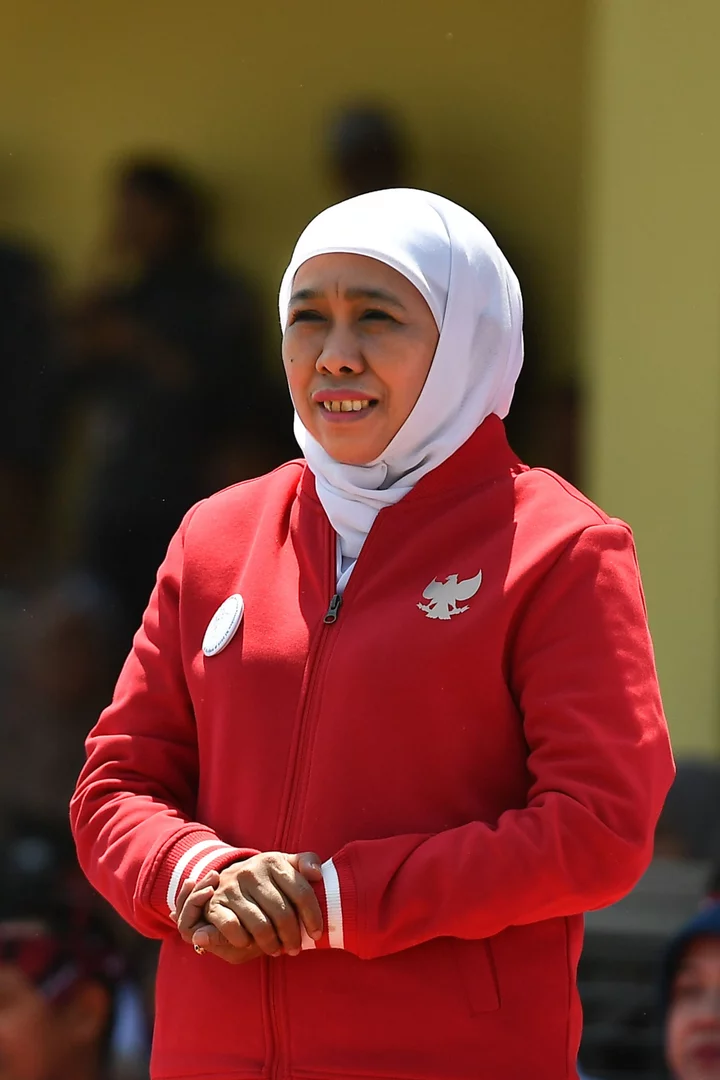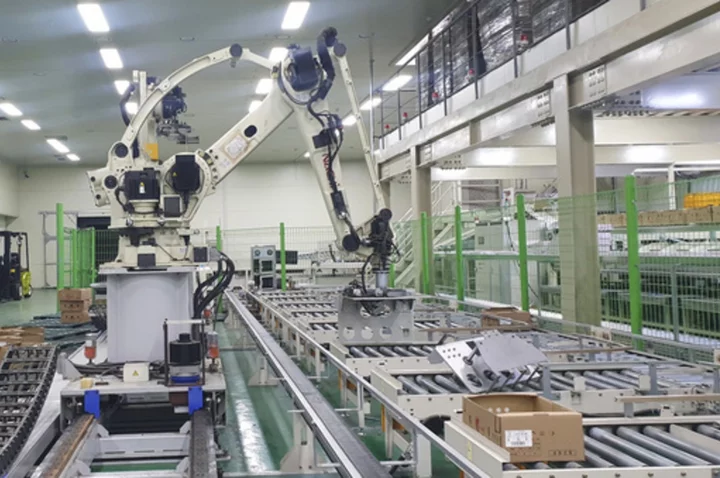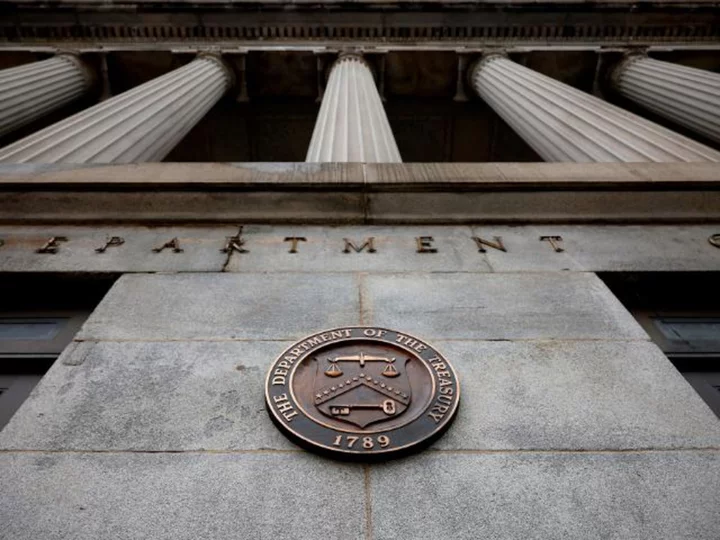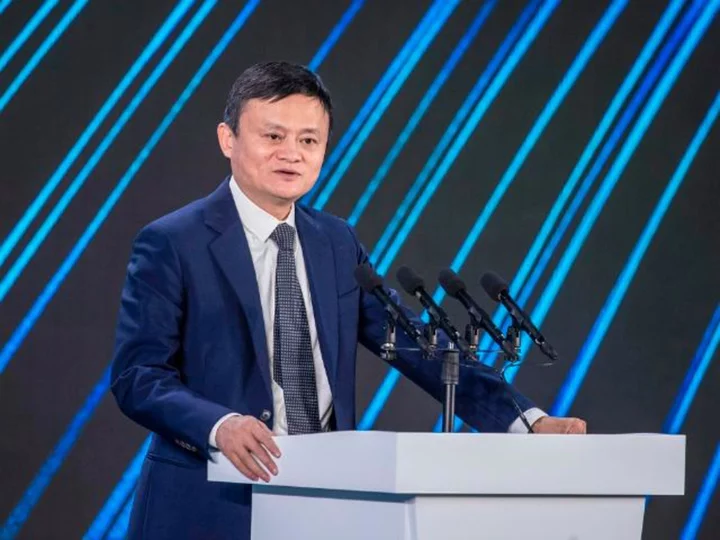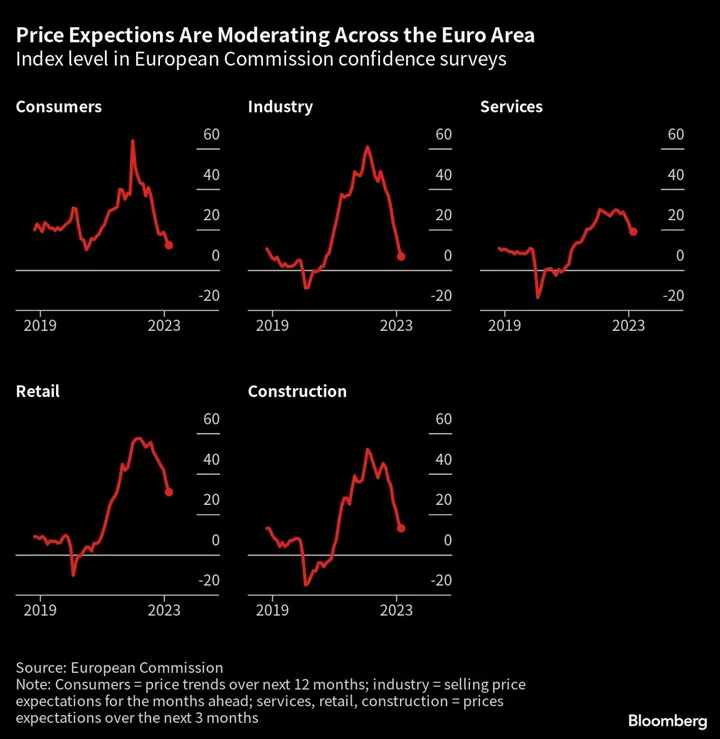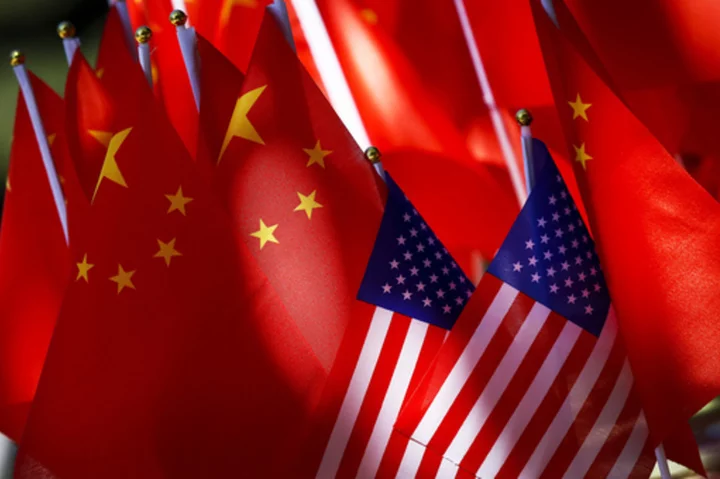Joko Widodo, who rose to become Indonesia’s president in 2014 as a political outsider, is positioning himself to become a power broker in the world’s fourth-most populous nation potentially for decades to come.
The leader popularly known as Jokowi, 61, will step down next year after serving his second and final presidential term. While speculation had initially swirled that his allies would seek to change the constitution to help him stay on for another five years, the president is now focused on ensuring his influence continues well after he steps down, according to multiple people familiar with the matter.
That primarily involved months of behind-the-scenes dealings within his own ruling party to line up 54-year-old Central Java Governor Ganjar Pranowo as its candidate in next year’s election, a decision announced in April. Jokowi is now heavily involved in deciding Ganjar’s running mate, with an announcement possible as early as this week, said two of the people, who asked not to be identified discussing private information.
But the president is also hedging his bets. Jokowi has strengthened ties with rival-turned-ally Prabowo Subianto, 71, who was the runner up in the last two presidential elections and bitterly fought the president before eventually agreeing to join his cabinet as defense minister after the last vote in 2019. Jokowi’s inner circle has discussed a possibility in which the president backs Prabowo as leader if Ganjar slips before the February 2024 election, the people said.
Jokowi’s maneuvering comes as his own burgeoning family dynasty begins to take shape. His eldest son and son-in-law are already mayors of important cities, while his youngest son is mulling an entry into politics — suggesting the president will play a key role in shaping the direction of Southeast Asia’s biggest economy potentially for decades to come.
Jokowi’s office didn’t respond to multiple emailed requests for comment, while Prabowo and Ganjar didn’t respond to written requests for comment.
In a June 7 speech in Singapore, Jokowi assured investors of policy continuity after he leaves office, including the completion of a $34 billion project to build a new capital called Nusantara from scratch in the jungle on the island of Borneo. The fifth and final stage is set to be completed in 2045.
“Your investment in Indonesia will continue to be safe,” Jokowi said. “Everything will be fine, don’t worry.”
Election fever is already starting to grip Indonesia, which will see some 205 million people cast ballots for legislative, gubernatorial and presidential candidates on Valentine’s Day next year. Red, green and yellow PDI-P flags can be seen all over Jakarta, along with banners saying “Jokowi Is The President We Love, Ganjar Is The President We Deserve.”
Jokowi’s approval rating hit an all-time high of 79.1% in May, showing that his political skills remain unrivaled in Indonesia. The latest election polls show Ganjar locked in a tight battle with Prabowo, a former son-in-law of former dictator Suharto, whose three-decade rule ended in 1998 as street protests paved the way for democracy to take root. Former Jakarta Governor Anies Baswedan, who has declared his intention to seek the presidency, is running third.
The backroom dealing is aimed at ensuring the success of Jokowi’s signature policies, including the new capital and a push toward onshore processing of resources such as nickel, bauxite and copper to turn Indonesia into a high-income nation by 2045. Policy reversals in previous decades stalled key projects like Jakarta’s metro, which opened in 2019 after some 30 years of planning.
“Jokowi is really trying to become a kingmaker,” said Bivitri Susanti, a law expert and political commentator from the Indonesia Jentera School of Law, who has conducted research on legislative, civil society and corruption issues for more than a decade. “It’s to secure his project commitments like the new capital, ensure his family is protected after he steps down and also ensure his dynasty is secured.”
Accounts by five insiders with knowledge of the matter illustrate how Jokowi deftly secured the nomination of his ally Ganjar despite initial resistance from one of Indonesia’s enduring political families.
In a series of private meetings over the past six months, Jokowi outmaneuvered 76-year-old ex-President Megawati Soekarnoputri, the longtime head of the ruling Indonesian Democratic Party of Struggle (PDI-P), over who should be the presidential candidate, the people said.
The issue had caused tension within PDI-P for much of the past year. When Ganjar said in an October interview that he was ready to become president, Megawati reprimanded him and the party sanctioned him, warning that his comments were seen as insubordinate.
In a March meeting between Jokowi and Megawati, the pair discussed politics for three hours over a spread of Indonesian food that included chicken soup and vegetables stewed in coconut gravy. Those dishes were the favorites of Sukarno — Indonesia’s first leader and Megawati’s father — deliberately prepared by Jokowi as he sought to charm a woman who had helped facilitate his rise from furniture maker to president.
Megawati had been pushing for her daughter, House Speaker Puan Maharani, to be the party’s nominee. But Puan, 49, has struggled in the polls, failing to land in the top five candidates in any major survey. At the meal, Jokowi sought to persuade Megawati to see that Ganjar, who topped surveys along with Prabowo, provided the best chance to secure victory.
At the same time, Jokowi intensified his courtship of Prabowo, who initially said the 2019 election was “stolen” and threatened unrest before eventually joining the cabinet. The flirting started late last year, with Jokowi in November suggesting it was Prabowo’s time to become president. Prabowo also sung praises of the leader, saying Jokowi contributed the most to the nation’s defense force compared with past presidents.
Megawati grew wary that Jokowi was engineering a partnership between Ganjar and Prabowo, a move that could split PDI-P and ruin its chances of governing for another five years. If it holds on to power after the 2024 election, PDI-P could become the first political party to govern for three straight terms since democratic legislative elections were held in 1999 following the downfall of Suharto.
On April 21, roughly a month after the afternoon meal with Jokowi, Megawati gave in and announced that Ganjar would be PDI-P’s candidate. “My job and responsibility aren’t easy,” she said at a press briefing. “Because of that, I use common sense — my heart and my thoughts.”
Megawati didn’t respond to written requests for comment.
Even as he backs Ganjar, Jokowi is still staying close to Prabowo. Just a day after Ganjar secured the PDI-P nomination, Prabowo visited Jokowi at his residence on the first day of Eid, usually reserved for family and close friends. People familiar with the matter said that Jokowi still has concerns that Ganjar may bow down to Megawati’s pressure and listen to her orders instead of his.
“Jokowi has the traits of past Javanese Kings who like to create competition between subordinates to test their loyalty,” said D. Nicky Fahrizal, a researcher at the Jakarta-based Centre for Strategic and International Studies.
Two members of Jokowi’s cabinet are among the favorites to become Ganjar’s potential running mate, said the people, who asked not to be identified discussing private information. One is Mahfud MD, the 66-year-old coordinating minister for political, legal, and security affairs, who is seen as a steady hand and loyalist of the president. Another is media tycoon-turned-State-Owned-Enterprises Minister Erick Thohir, 53.
The people said two other Jokowi favorites are also in the mix: Nasaruddin Umar, the 63-year-old imam of Jakarta’s Istiqlal Mosque, the largest in Southeast Asia, and East Java Governor Khofifah Indar Parawansa, 58, whose friendship with the president goes back to when he was mayor of Solo in Central Java.
Mahfud, Thohir, Umar and Khofifah didn’t reply to requests for comment.
During his time in office, Jokowi worked to expand his influence among business elites and younger leaders to support his priorities. Some joined his cabinet, including Thohir and Nadiem Makarim, co-founder of ride-hailing service Gojek.
And Jokowi’s family members are also waiting in the wings. Gibran Rakabuming Raka, the president’s 35-year-old eldest son and currently mayor of the family’s hometown of Surakarta, is seen by analysts as a possible candidate for Jakarta governor — the position that propelled Jokowi to the nation’s top job. His 31-year-old son-in-law, Bobby Nasution, is currently the mayor of Medan, Indonesia’s fifth-largest city.
“After almost 10 years of Jokowi’s presidency, I don’t think anyone underestimates Jokowi’s political acumen,” said Donna Priadi, Indonesia’s country director at consultancy firm Vriens and Partners. “Jokowi’s views will be sought after by the public after he leaves office.”

